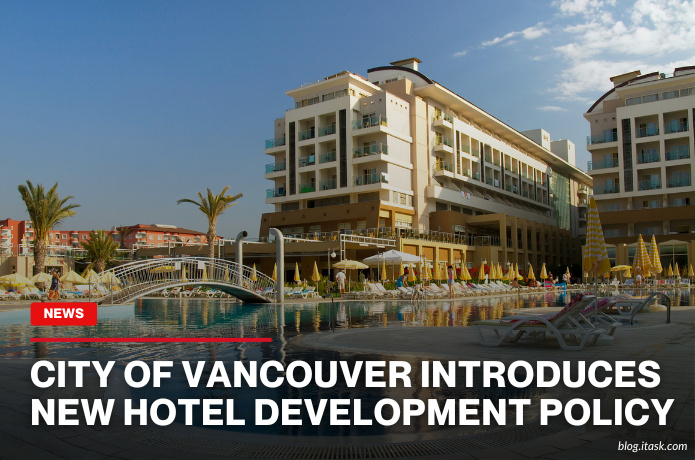City Of Vancouver Introduces New Hotel Development Policy
City Of Vancouver Introduces New Hotel Development Policy

The City of Vancouver has introduced a new Hotel Development Policy aimed at addressing a significant shortage of hotel rooms. According to Destination Vancouver, the city needs an additional 10,000 hotel rooms by 2050 to meet growing demand. The new policy focuses on zoning changes to encourage hotel construction, especially in the Central Business District (CBD), which currently holds 43% of the city's hotel rooms.
Key changes include allowing mixed-use hotel and residential developments in the CBD and on Broadway Plan sites with narrow frontages in non-residential areas. The policy also permits additional density for 100% hotel developments on certain commercial zones and for existing hotels seeking to expand their room count. These adjustments aim to make hotel projects more financially viable, particularly in areas where land costs are high.
The policy was developed following a motion introduced in Fall 2023 by Councillor Sarah Kirby-Yung, who emphasized the importance of supporting the tourism economy and reducing pressure on local housing. The motion highlighted that Vancouver's continued loss of hotel rooms is due to development policies with geographic and zoning restrictions, high land costs, and lengthy approval processes.
Without intervention, the shortage of hotel rooms could have significant economic impacts. A report by Destination Vancouver warns that by 2050, the lack of hotel capacity could result in $30.6 billion in foregone output, $16.6 billion in lost GDP, over 168,000 unrealized full-time jobs, and $7.5 billion in lost tax revenue.
The new policy also aligns with the city's commitments to the United Nations Declaration on the Rights of Indigenous Peoples (UNDRIP) by enabling additional density for hotel projects that advance reconciliation goals. This approach seeks to balance economic development with social responsibility.
By implementing these changes, Vancouver aims to increase its hotel room supply, support the tourism industry, and alleviate pressure on the housing market. The policy is expected to encourage new hotel developments, making the city more competitive in attracting major events and visitors in the coming decades.
